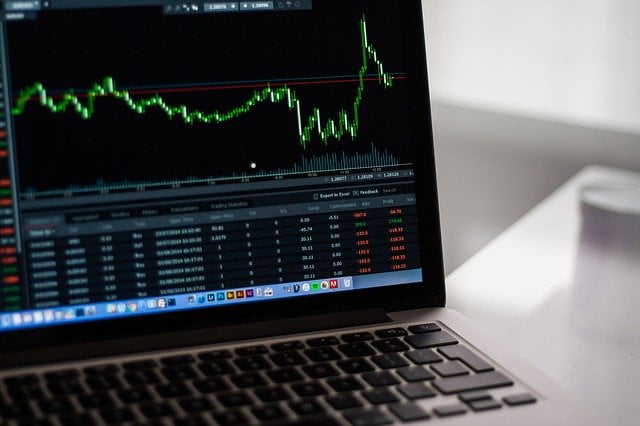I recently read a fascinating interview with Ben Inker, the head of asset allocation at GMO. Inker said that the question that he is most frequently asked by clients is what he considers a good signal that prices are about to turn. Many investors are concerned about today’s high stock prices but are reluctant to lower their stock allocations given the low returns being offered today by low-risk asset classes. So it certainly makes sense that this would be a priority concern.
Q4 2020 hedge fund letters, conferences and more
Identifying Factors That Lead To Stock Price Downturns
Inker says that there were several factors that he was looking at on earlier occasions when prices took a quick downturn but gives the sense that he has not been able to identify reliable signals. I fully understand the desire to identify such signals. But I personally doubt that it will ever be possible to do so.
My view is that it is a mistake to apply standards of rationality to a market that we know from Shiller’s research is fundamentally irrational. One could conclude that the stock prices drop when there are signs that interest rates will be rising or that energy prices will be increasing or that there will be political turmoil. These are the sorts of drivers that people thought about in pre-Shiller days. If the market were efficient (that is, if investors were rational) these would indeed be the sorts of economic developments that would cause stock prices to fall.
But the market is not efficient. Investors are not rational. Showing that was the point of Shiller’s Nobel-prize-winning work. So it seems to me that we need to begin thinking about these matters in new ways.
What matters is not the economic development, what matters is the investor reaction to the economic development. Investors who are emotionally open to a price drop will respond differently to a change in interest rates or energy prices or political turmoil than will investors who are not emotionally open to a price drop. We need more investigations into what makes investors more open or closed to price drops.
Exmaple Of The 2008 Price Crash
I’ll give one example of what I am getting at that I have picked up from conversations with a number of investors. People have told me that they were worried about their stock portfolio in the days following the 2008 price crash and gave consideration to lowering their stock allocation but were persuaded not to do so by the statements made by many experts that prices always recover and that staying the course is the wiser course of action in such circumstances. Those investors felt vindicated when prices shot upward in late 2009 and then continued rising for most of the following years. The thinking of those investors is strongly closed to the idea that changes in interest rates or energy prices or the level of political turmoil could bring on price drops of lasting significance.
And that’s what matters. It is not the economic development that determine where stock prices go. It is the investor reaction to the economic development.
Now --
It is not the case that we are never going to see stock prices drop again because millions of us lived through the 2008 crash and saw the Buy-and-Hold concept produce good results in that scary situation. Prices always eventually return to fair-value levels and that is going to happen this time too. The point is that the resistance to a price drop is stronger as a result of what happened following the 2008 crash. For an event taking place today to cause a price turn, it would have to have the power to cause investors to become skeptical of the lesson they learned in the aftermath of the 2008 crash.
Economic Developments Aren't Enough To Trigger To A New Crash
The trigger to a new crash would have to be something broader and potentially more powerful and thus more scary than the various economic developments that are traditionally thought of as the sorts of economic developments that bring on price turns. My guess is that it might be something that would cause a large number of investors to imagine the possibility not just of a conventional adjustment to interest rates but of a long-term change in Federal Reserve policy.
Inker makes the case in the interview that the Federal Reserve has played a big role in keeping stock prices high. Stock investors generally applaud the role that the Federal Reserve has played. But we all know on some level of consciousness that the Federal Reserve cannot protect us indefinitely from lower stock prices. Even the most ardent of bulls are wondering today -- What could cause a change in policy?
It might be that there will be economic and political developments that will cause some to believe that super-low interest rates are not tenable as a long-term proposition in a society in which debt is out of control. Some development could take place that would cause a significant portion of investors to conclude that the happy state of affairs that has applied from 2009 forward is not long for the world. That idea, an idea that most of us have been refusing to let into our brains for some time now, could spread like wildfire once it is being openly voiced in even small influential circles.
In a sense I am agreeing that a change in interest rates could bring on a price turn. My suggestion, though, is that it is too simple a conclusion to point to interest rate changes as the possible catalyst. The key is breaking down the wall of resistance to the possibility of a stock price drop that was established when the feared price drop of 2008 turned out to be a bit of a dud. It’s the psychology inspired by economic developments that matters, not the economic developments themselves.
https://www.bloomberg.com/opinion/articles/2021-02-16/gmo-s-inker-blames-the-fed-for-the-asset-bubble
Rob’s bio is here.













